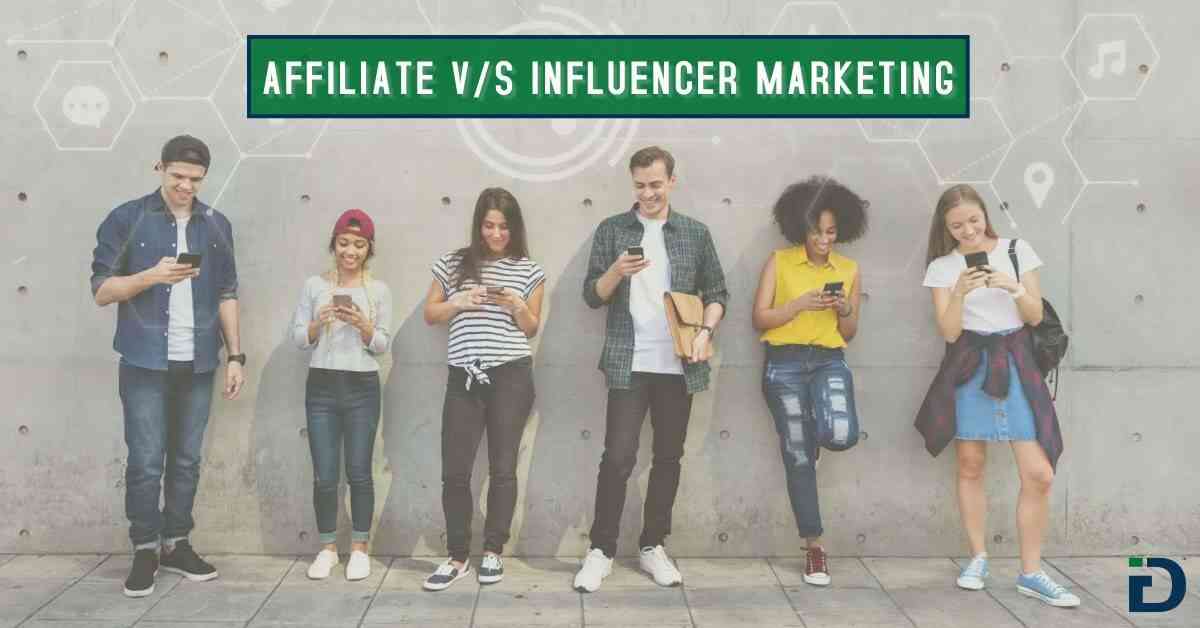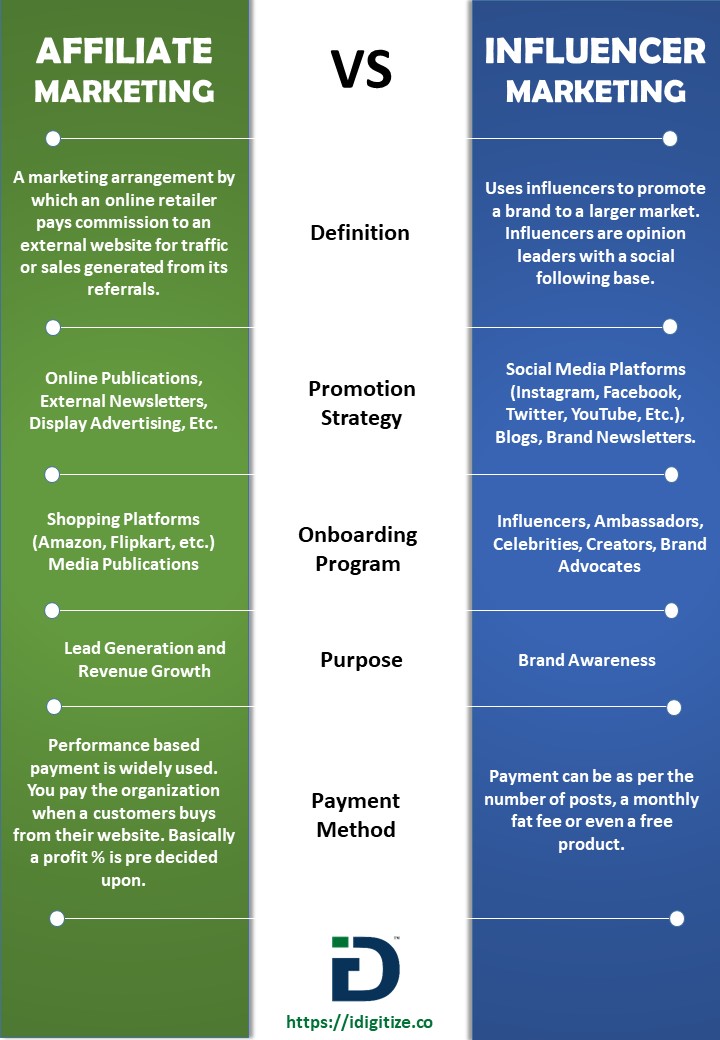Affiliate Marketing V/s Influencer Marketing
- - Category: Communication
- - 02 Nov, 2022
- - Views: 518
- Save

Most marketing teams today get befuddled between Affiliate Marketing and Influencer Marketing.
Most marketing teams today get befuddled between Affiliate Marketing and Influencer Marketing. Often, people think it’s the same, which is not the case. Though these terms fall under the big umbrella of Digital Marketing they have different approaches as well as different outcomes.
To start with let’s define them both to get into the basics.
Affiliate Marketing: Affiliate marketing is an advertising model in which a company compensates independent or third-party publishers to generate traffic or leads to the company’s products.
Influencer Marketing: Influencer marketing is all about collaboration between brands and leaders who rule the internet world with their fan following base who trusts them and influence the purchasing behaviours of their audience.
Below is a differentiating table that will give you more clarity on the above-discussed concepts.

Benefits of Affiliated Marketing:
1. Cost-effective: You do not have to bare the cost of platform maintenance, updates, etc. Also, you have outsourced the online sales means you do not need to hire experts or professionals to do technical tasks for you.
2. You stay in competition: Out of sight is out of mind holds true here. Among the various other competitive brands who have signed up with the same third-party program for sales, your brand is visible and hence stays in the competition.
3. A brand gets mass exposure: As your products are marketed on a third-party platform, you can get massive public exposure resulting in high visibility.
4. Passive business income: Make money on sales or purchases while you sleep. Automating the sales program with a third-party giant can allow you to make $$$ while you ZZZ.
Disadvantages of Affiliate Marketing:
1. You can’t control Affiliate programs: As this is an external organisation marketing your products you almost have no control over the program.
2. You don’t own your customer base: Being a third-party onboarding program, they do not allow you to access your product’s customer base.
3. No sales guarantee: While you sign up a third party to handle your online sales, they do not guarantee you any income as it is solely a customer-interest purchase.
4. Quantitative approach to sales: Here the more pieces sold by the third-party platforms the more the revenue. Here, the quality of the products is seldom ignored while selling.
Benefits of Influencer marketing:
1. Builds Trust and credibility: Here if you onboard a celebrity or influencer whose image is trustworthy and strong these attributes somewhere get attached to the brand. This not only adds value but also ensures a healthy brand character.
2. Targets the right set of audiences: As a brand, you will choose a celebrity or an influencer whose personality or profession matches your brand. Eg: For maternity brand wear you would like to onboard Kareena Kapoor or Anushka Sharma or Alia Bhatt who can target the masses for your brand upliftment.
3. Budget friendly: As there are no technicalities involved unlike in Affiliate Marketing, you only bare the cost of sharing your products with the influencer.
4. Suitable to promote any product or service: Name the product or service and there will be someone talking about it online. Hence, influencer marketing allows you to market any product or service under the roof making it a feasible option for most brands.
5. Quality user generation marketing: This marketing technique will comprehend your product objectives and your influencer will communicate the brand message efficiently. This additionally, attracts quality customers/buyers for your product.
Disadvantages of Influencer Marketing:
1. Trust can be lost in 1 second: In case you have onboarded a famous celebrity for your brand and they are found to be involved in illegal or non-acceptable behaviours your brand gets a hit overnight.
2. Influencer fatigue: Too much of anything will create fatigue in the minds of your customers. A viewer will get bored of seeing repetitive influencer content. A pleasant change is always appreciated.
3. High risk involved: If your influencer is unable to deliver the required substance to boost inquiry and indirectly sales, onboarding them will do more harm than good to your brand.
Pick your choice:
Digital marketing doesn’t have to battle influencer marketing v/s affiliate marketing. They can actually do wonders for your brand if they work in tandem. A brighter way to look at the differences is to figure out what your organisational goals are and then choose the right marketing strategy to reach them.

